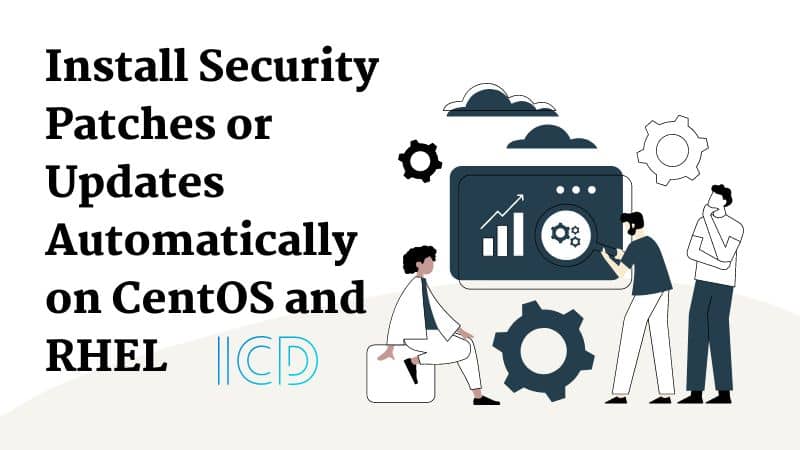One of the serious needs of a Linux system is to be kept up to date regularly with the latest security patches or updates available for the corresponding distribution.
In a previous article, we’ve explained how to configure automatic security update in Debian/Ubuntu, in this article we will explain how to set up your CentOS/RHEL 7/6 distribution to auto update essential security packages when needed.
Other Linux distributions in the same families (Fedora or Scientific Linux) can be configured similarly.
Configure Automatic Security Updates on CentOS/RHEL Systems
On CentOS/RHEL 7/6, you will need to install the following package:
# yum update -y && yum install yum-cron -y
Enable Automatic Security Updates on CentOS/RHEL 7
Once the installation is complete, open /etc/yum/yum-cron.conf and locate these lines – you will have to make sure that the values matches those listed here:
update_cmd = security update_messages = yes download_updates = yes apply_updates = yes
The first line indicates that the unattended update command will be:
# yum --security upgrade
whereas the other lines enable notifications and automatic download and installation of security upgrades.
The following lines are also required to indicate that notifications will be sent via email from root@localhost to the same account (again, you may choose another one if you want).
emit_via = email email_from = root@localhost email_to = root
Enable Automatic Security Updates on CentOS/RHEL 6
By default, the cron is configured to download and install all updates immediately, but we can change this behavior in /etc/sysconfig/yum-cron configuration file by modifying these two parameters to yes.
# Don't install, just check (valid: yes|no) CHECK_ONLY=yes # Don't install, just check and download (valid: yes|no) # Implies CHECK_ONLY=yes (gotta check first to see what to download) DOWNLOAD_ONLY=yes
To enable email notification that about the security package updates, set the MAILTO parameter to a valid mail address.
# by default MAILTO is unset, so crond mails the output by itself
# example: MAILTO=root
[email protected]
Finally, start and enable the yum-cron service:
------------- On CentOS/RHEL 7 ------------- systemctl start yum-cron systemctl enable yum-cron ------------- On CentOS/RHEL 6 ------------- # service yum-cron start # chkconfig --level 35 yum-cron on
Congrats! You have successfully set up unattended upgrades on CentOS/RHEL 7/6.
Summary
In this article we have discussed how to keep your server updated regularly with the latest security patches or updates. Additionally, you learned how to configure email notifications in order to keep yourself updated when new patches are applied.
If you have any concerns about this article? Feel free to drop us a note using the comment form below. We look forward to hearing from you.
